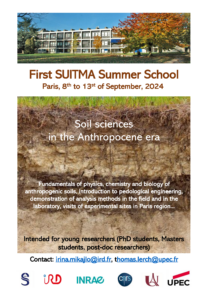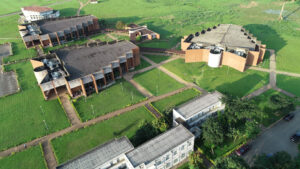
Thesis defense of Mathias Dezetter
“Water and thermal constraints associated with climate change: physiological and behavioral responses in two viviparous snakes”
Water and thermal constraints associated with climate change: physiological and behavioral responses in two viviparous snakes
ID de réunion : 968 1672 2865
Code secret : 83Sxkm
Abstract: Climate change is leading to long-term changes in global temperature and precipitation, but also to more frequent and intense extreme weather events. While the responses of ectotherms to thermal conditions have attracted considerable interest, physiological and behavioral responses to water constraints are seldomly considered. Yet, understanding the ecological responses to climate change requires the consideration of the combined effects of thermal and water stressors and clarification of the interactions between thermoregulation and hydroregulation. The general hypothesis of my thesis is that the physiological and behavioral mechanisms of thermal and water balance regulation are closely linked. Through experimental approaches, I have documented the physiological and behavioral responses to climatic constraints of two terrestrial ectotherms, the European adder (Vipera berus) and the asp viper (Vipera aspis), over time scales ranging from weeks to several years, both during and outside of reproduction. My results demonstrate that thermal and water balance regulations interact and incorporate shared proximal mechanisms. I found that there were predominantly additive effects of combined thermal and water constraints on physiology, and pronounced sensitivity to water constraints during reproduction in these viviparous ectotherms. I also demonstrated that individuals exhibit behavioral hydroregulation in response to dehydration: organisms can mitigate the effects of water stress on physiology by limiting their exposure through the selection of moist microclimates or, if avoidance is impossible, restore their water balance after stress exposure. Altogether, my work illustrates the importance of considering the effects of water constraints on ectotherms, and their ability to respond through physiological and behavioral adjustments, in order to better understand and predict the responses of terrestrial ectotherms to climate change.
Keywords: [water balance; behaviour ; development ; hydroregulation; microclimate; performance; physiology; phenotypic plasticity; reproduction; thermoregulation]
Advised by Olivier Lourdais & Jean-François Le Galliard
PhD committee: Christel Lefrançois; Hervé Colinet; Dale DeNardo; Karine Salin; Julien Gasparini
- Orateur: Mathias Dezetter
- Laboratoire: équipe VPA iEES Paris, cotutelle Olivier Lourdais CEBC Ecophy




